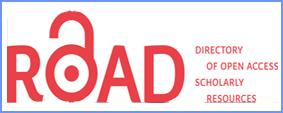ETIKA PENDIDIKAN DALAM PEMIKIRAN AL-GHAZALI DAN KI HADJAR DEWANTARA: SEBUAH TELAAH PENGEMBANGAN PENDIDIKAN DI INDONESIA
Abstract
This study discusses the development of globalization, advances in science and technology that have an impact on human life. Ease of transportation, communication and access to education are positive impacts. Meanwhile, the degradation of moral values, namely individualistic, selfish, and competitive attitudes is a negative influence on the development and advancement of science.
Moral education and among system education is an ideal educational alternative in facing the development of technology in Indonesia. Moral education according to al-Ghazali, teaches a child to understand the Qur'an and Hadith from an early age. By learning religion from an early age, children are able to strengthen beliefs. The basic character of children who are mature and supported by strong religious beliefs are able to avoid the bad effects of globalization. Meanwhile, among system education according to Ki Hadjar Dewantara is education that fosters mutual respect for fellow human beings. Appreciating and respecting fellow human beings will foster a sense of humanity and humanize humans, thus avoiding individualism, egoism, and competition between individuals.
Downloads
References
Ahmed, Akbar S. “New Horizons in Muslim Education.” American Journal of Islam and Society (1986).
Al-Ghazali, Abu Hamid. “Ihya Ulumuddin; Menghidupkan Ilmu-Ilmu Agama.” 1, 1965.
Bhat, Ali Muhammad. “Islamic Philosophy of Education.” Journal of Culture and Values in Education 2, no. 2 (2019).
Dewantara, Ki Hadjar. “Karya Ki Hadjar Dewantara Bagian 1: Pendidikan.” In Majelis Luhur Persatuan Taman Siswa, 2004.
Eko Mujito, Wawan. “Konsep Belajar Menurut Ki Hadjar Dewantara Dan Relevansinya Dengan Pendidikan Agama Islam.” Jurnal Pendidikan Agama Islam (2017).
Henricus Suparlan. “Filsafat Pendidikan Ki Hadjar Dewantara.” Jurnal Filsafat (2015).
Idris, Muh. “Pendidikan Pembebasan (Telaah Terhadap Pemikiran Paulo Freire).” Dinamika Ilmu: Journal of Education (2009).
Marwah, Siti Shafa, Makhmud Syafe’i, and Elan Sumarna. “Relevansi Konsep Pendidikan Menurut KI Hadjar Dewantara Dengan Pendidikan Islam.” TARBAWY : Indonesian Journal of Islamic Education (2018).
Mukit, Abdul. “Pemikiran Pendidikan Al-Ghazali.” Al-Irfan : Journal of Arabic Literature and Islamic Studies (2019).
Nata, Abuddin. Pemikiran Para Tokoh Pendidikan Islam. Seri Kajian Filsafat Pendidikan Islam, 2000.
Rohayati, Enok. “Pemikiran Al-Ghazali Tentang Pendidikan Islam.” Miqot: Jurnal Ilmu-Ilmu Keislaman (2011).
Sheikh, Sajid, and Muhammad Ali. “Al-Ghazali’s Aims and Objectives of Islamic Education.” Journal of Education and Educational Development 6, no. 1 (2019): 111–125.
UU No.20 tahun 2003. “UU No.20 Tahun 2003.” Ristekdikti (2003).
Wahid, A. H., Muali, C., & Sholehah, B. “Pendidikan Akhlak Perspektif Al-Ghazali.” At-Tajdid: Jurnal Ilmu Tarbiyah (2018).
Wangid, M. “Sistem Among Pada Masa Kini: Kajian Konsep Dan Praktik Pendidikan.” Jurnal Kependidikan: Penelitian Inovasi Pembelajaran 39, no. 2 (2009): 129–140.
Wiryopranoto, Suhartono, Nina Herlina, Djoko Marhandono, and Yuda B. Tangkilisan. Ki Hajar Dewantara Pemikiran Dan Perjuangannya, 2017.




.png)








